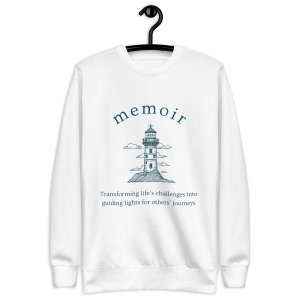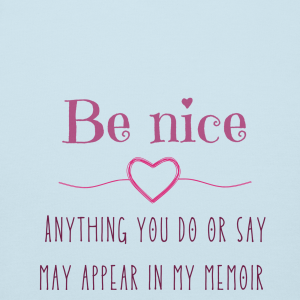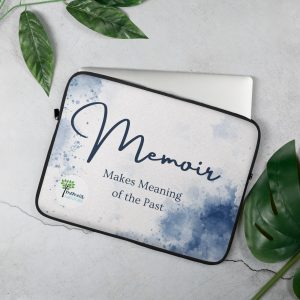New Store Launch, Microsoft Word Tip, and Book Club Highlights Inside!
Hello Memorists!
 I’m cautiously excited to share a new venture with you: a Memoir Mementos store! I’ve been working hard on creating some unique items, including journals, mugs, and more, to celebrate our writing journey together. I’ve put a lot of love into designing these pieces and I ordered samples to ensure they’re high quality—I especially adore the journals! Scroll on down for a preview of some of the items or go straight to the shop here:
I’m cautiously excited to share a new venture with you: a Memoir Mementos store! I’ve been working hard on creating some unique items, including journals, mugs, and more, to celebrate our writing journey together. I’ve put a lot of love into designing these pieces and I ordered samples to ensure they’re high quality—I especially adore the journals! Scroll on down for a preview of some of the items or go straight to the shop here:
https://www.etsy.com/shop/MemoirMementos
I understand that everyone has different budgets, so please know that the pricing reflects the quality and effort that went into making these items. If you’re curious, take a look and see if there’s something that speaks to you.
In this newsletter, you’ll also find a handy tip for Microsoft Word to keep your screen steady, and a summary of our recent discussion on “You Could Make This Place Beautiful” from our book club. I hope these updates inspire and assist you in your writing endeavors.
Thank you for your continued support and for being such a wonderful part of our community. Your encouragement means the world to me.
https://www.etsy.com/shop/MemoirMementos
Warm regards,
~Christina

Book Club Discussion – You Could Make This Place Beautiful by Maggie Smith
![]() Our most recent book club discussed Maggie Smith’s memoir, You Could Make This Place Beautiful. This was a divisive one, with some really liking it and others not. Our readers’ average star rating was 3.6 out of 5.
Our most recent book club discussed Maggie Smith’s memoir, You Could Make This Place Beautiful. This was a divisive one, with some really liking it and others not. Our readers’ average star rating was 3.6 out of 5.
Strong start and finish, swampy middle:
Everyone agreed that Smith’s writing is undeniably beautiful. Her use of metaphors and repetitions initially drew everyone in (particularly the physical symbolism of the pinecone), but as the book progressed, many felt these literary devices were overused. The repeated chapter titled: “A friend says every book begins with an unanswerable question” elicited groans for its frequent appearance.
Smith’s background as a poet both helped and hindered her in this memoir. Some phrases made us ache with their beauty. However, some felt this book should have been abbreviated to a gorgeous poem and felt that the repetitions were simply fillers that diminished the impact of her story.
Perhaps Smith should have followed Stephen King’s & William Faulkner’s advice on “killing our darlings.”
Literary Devices:
Smith’s use of literary devices, especially her tendency to explicitly point them out, garnered mixed reactions. Some members appreciated the insights into the craft, finding it helpful and clever. Others felt it was forced and distracting, and felt her metaphors sometimes bordered on cliché.
Writing Techniques and Advice:
This is the first time many of us have encountered this style of writing. We discussed whether employing Smith’s literary devices or mimicking Frank McCourt’s unpunctuated dialogue might be considered copying. The consensus was that using these techniques isn’t off-limits but rather could invite writers to explore and push boundaries. However, it all depends on skill.
The consensus was that literary devices should be used judiciously and with purpose. Metaphors should stem from personal experiences and be crafted thoughtfully to avoid clichés. Repetition, while useful for cohesion, should not hinder the narrative’s progress or become redundant.
Depth and Vulnerability:
While some felt that Smith had a gorgeous way of expressing relatable emotions, others criticized her for blaming her ex-husband excessively and showing too much self-pity, lacking self-awareness or acknowledgment of her own privilege. This sparked a discussion about the dangers of comparing trauma, reminding us that every person’s experience is valid and unique. It also reminds us that everyday people with ordinary lives deserve to tell their stories. Not all memoirs need to be filled with extraordinary sadness or unusual events to be meaningful and successful.
A crucial part of our discussion revolved around Smith’s depth and vulnerability. Some felt she did not delve deep enough into her own flaws, focusing too much on her ex-husband’s faults. The statement “This isn’t a tell-all, this is a tell mine” was a point of debate, with some appreciating the personal boundary it set and others feeling it limited the memoir’s depth and kept readers from feeling her emotions or connecting with her.
We agreed that while it’s challenging to please everyone with personal narratives, aiming for authenticity and vulnerability is vital.
Next Book Club Choice – What I Was Doing While You Were Breeding by Kristin Newman
I’m excited to be discussing:
What I Was Doing While You Were Breeding, by Kristin Newman
Book club questions can be found here (When I get around to writing them): https://memoirmentors.com/book-club-questions/
This is one of my favorite memoirs, I’m fully prepared for some of you to think it’s shallow, but I loved it! It’s got none of the self-pity of the last book we read, and it’s really funny, so it’s got that going for it!
What it’s about:
Kristin Newman spent much of her twenties and thirties buying dresses to wear to her friends’ weddings and baby showers. Not ready to settle down and in need of an escape from her fast-paced job as a sitcom writer, Kristin instead traveled the world, often alone, for several weeks each year. In addition to falling madly in love with the planet, Kristin fell for many attractive locals, men who could provide the emotional connection she wanted without costing her the freedom she desperately needed.
Kristin introduces readers to the Israeli bartenders, Finnish poker players, sexy Bedouins, and Argentinean priests who helped her transform into “Kristin-Adjacent” on the road–a slower, softer, and, yes, sluttier version of herself at home. Equal parts laugh-out-loud storytelling, candid reflection, and wanderlust-inspiring travel tales, What I Was Doing While You Were Breeding is a compelling debut that will have readers rushing to renew their passports.
How to fix that irritating “screen jump” when you’re scrolling through Word files
How many times have you been reading along in your Word doc (especially when you are sharing your screen), and as you scoot down to the next page, the screen jumps and you lose your place?
Good news! There’s a quick fix for this!
Simply hover over that space between two pages, and when the cursor changes to a double-headed arrow, double-click!
That makes that blank space between pages disappear and instead become a thin line to indicate a new page.
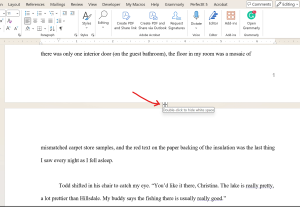
You can easily toggle this back on by double-clicking on that thin line.
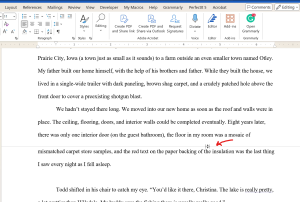
Upcoming events
I’d prefer that you sign up through Meetup so I know who to expect and so that you know what the agenda is for the week, but if that’s too problematic, you can go directly to the Zoom link that we use every week:
https://zoom.us/j/4400465879?pwd=R0Y0RUp4YjAvdnJCODV0MkhNMXlmdz09
August 29: Write then Read:
https://www.meetup.com/memoir-mentors/events/299829461/
September 5: Write Then Read:
https://www.meetup.com/memoir-mentors/events/300028037/
September 12: Write Then Read:
https://www.meetup.com/memoir-mentors/events/299955133/
September 19: Write then Read:
https://www.meetup.com/memoir-mentors/events/300028080/
September 26: Speaking Your Story:
https://www.meetup.com/memoir-mentors/events/300028093/
October 3: Book Club – What I Was Doing While You Were Breeding:
https://www.meetup.com/memoir-mentors/events/302271301/
Fundraiser Update
Your continued support has brought us closer to our €4000 goal, and I’m thrilled to share that we’ve reached €1025. Thank you to all who have contributed thus far; your generosity sustains our community.
If Memoir Mentors has played a meaningful role in your writing journey, please consider contributing.
Contribute Now
Your support means so much to me. I’m profoundly grateful for each of you.
Ideas? Questions? Suggestions?
 Reply to this email and let me know or reach out directly at: xtina.howell@memoirmentors.com
Reply to this email and let me know or reach out directly at: xtina.howell@memoirmentors.com
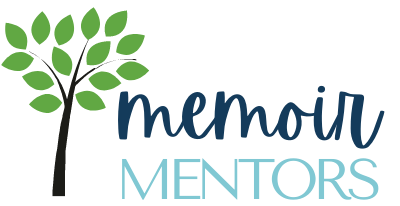

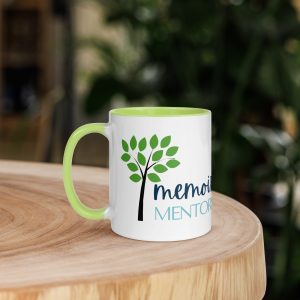
 This journal, with the inspiring phrase “Live an Amazing Story,” is designed to remind you that every day is a chance to add something extraordinary to your life’s narrative. I’ve created this journal with our Memoir Mentors community in mind. Your purchase not only supports your personal storytelling but also helps keep our community thriving. Thank you for helping to write the next chapter of Memoir Mentors.
This journal, with the inspiring phrase “Live an Amazing Story,” is designed to remind you that every day is a chance to add something extraordinary to your life’s narrative. I’ve created this journal with our Memoir Mentors community in mind. Your purchase not only supports your personal storytelling but also helps keep our community thriving. Thank you for helping to write the next chapter of Memoir Mentors.